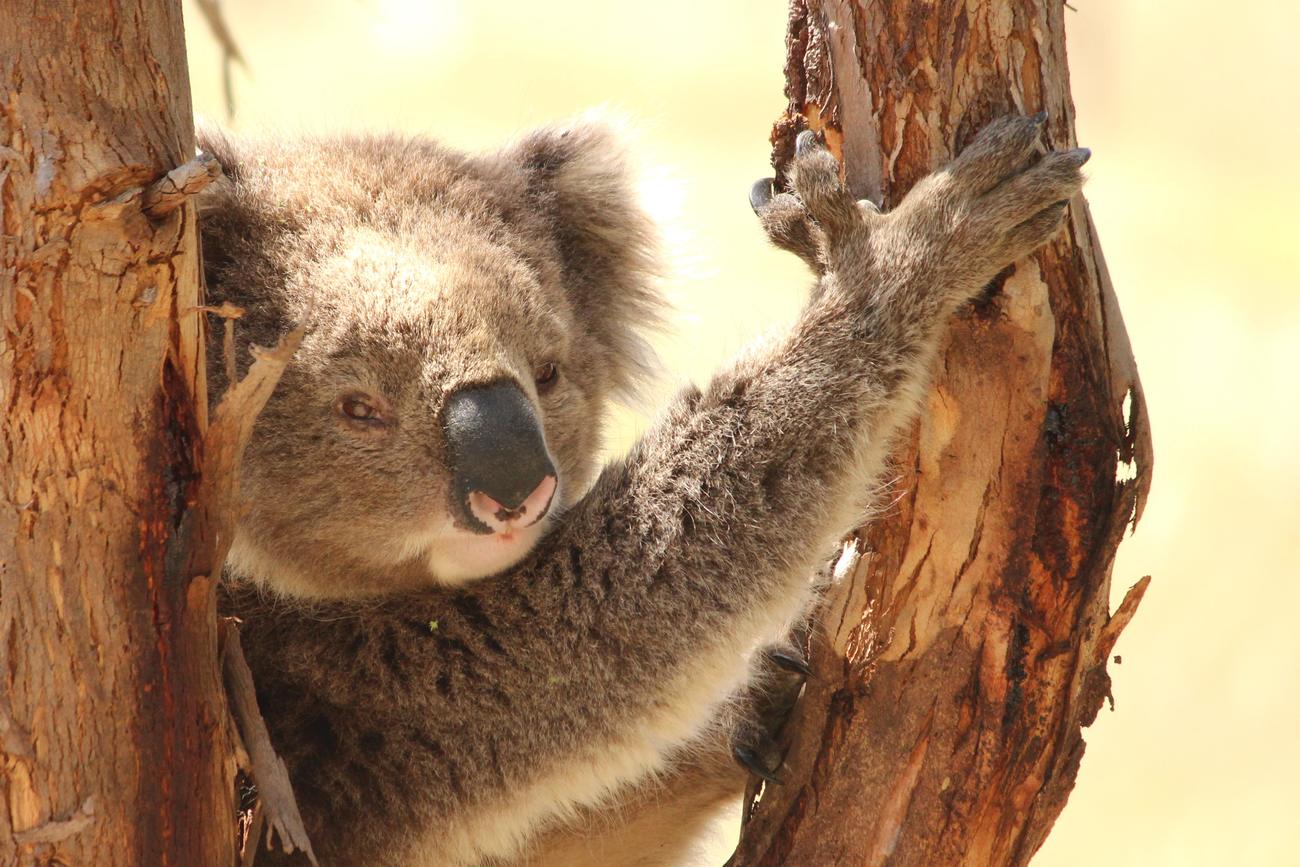Koala Protection: Rescue, Rehabilitate, Release, and Secure - Australia, New South Wales
Planting a future for koalas, one tree at a timethree ways you can help koalas — protect a forest, plant a tree, phone a pollie
three ways you can help koalas — protect a forest, plant a tree, phone a pollie

Sydney, May 3rd, 2022 - Koala protection groups across Australia have joined forces to call on the public to help struggling koala populations.
This Wild Koala Day on May 3, Koala Clancy Foundation and the International Fund for Animal Welfare (IFAW) are raising the alarm on the importance of habitat to the koala’s survival.
Co-founder of Wild Koala Day Janine Duffy says the original purpose of the day was to get everyone talking about koalas so that we could take action to save them, and plant trees to help them thrive.
“Wild Koala Day started in 2016 with most of the grass-roots koala protection groups working together to bring the plight of koalas to the attention of the public and government,” Ms Duffy said.
"We were concerned that Australians didn’t know how much trouble koalas were in. You can’t solve a problem that you don’t know exists. But since the Black Summer bushfires everyone has been talking about, and taking action for koalas.”
While more than 333,890 trees have been planted as a result of Wild Koala Day since 2016, it hasn’t matched the rate of land clearing and habitat loss. Approximately 44 per cent of Australian forests and woodlands have been cleared since European settlement largely for agriculture and development. Koala habitats were dealt a further blow during the 2019-20 Black Summer bushfires where more than 18 million hectares of land was lost – much of which was core koala habitat in NSW, QLD and Victoria.
“The Black Summer bushfires put a global spotlight on the plight of the koala but it’s a shame it took such a catastrophe for the species to get the attention they desperately need,” IFAW Regional Director Rebecca Keeble said.
“Since then koala populations in QLD, NSW and the ACT have been up-listed to Endangered at the federal level, while other populations continue to face significant threats. Their survival comes down to addressing the root cause of their decline which is habitat loss and climate change. Koalas don’t stand a chance unless we stop cutting down the trees they call home.”
This Wild Koala Day, Koala Clancy Foundation and IFAW are urging the public to help in three different ways. Firstly, protect the forests that koalas and other native animals call home.
“Only a koala knows precisely what forest type a koala needs, so the forests they are in must be protected,” Ms Duffy said.
Secondly, it is vital individuals, community groups and organisations continue to plant trees for koalas in areas where historic clearing has occurred. This does not replace protecting forests, and should be done in addition to safeguarding the habitat that remains.
Finally, the easiest action anyone can do from home is to contact their local politician.
“If koalas are important to you, your local and upper house politicians need to know that so they can make the laws you want,” Ms Duffy said.
Australians wanting to take action to save koalas and forests can visit http://www.wildkoaladay.com.au and www.ifaw.org/au.
***
High resolution images and video can be found here - https://spaces.hightail.com/receive/99G6OM5yTx Interviews available on request.
About Janine Duffy - Janine Duffy has been a Koala Researcher for 23 years, specialising in the You Yangs and Brisbane Ranges koala populations near Geelong and Melbourne, Victoria. She discovered a method of identifying koalas by their natural nose markings. She is the president of the not for profit Koala Clancy Foundation.
About the International Fund for Animal Welfare (IFAW) - The International Fund for Animal Welfare is a global non-profit helping animals and people thrive together. We are experts and everyday people, working across seas, oceans and in more than 40 countries around the world. We rescue, rehabilitate and release animals, and we restore and protect their natural habitats. The problems we’re up against are urgent and complicated. To solve them, we match fresh thinking with bold action. We partner with local communities, governments, non-governmental organisations, and businesses. Together, we pioneer new and innovative ways to help all species flourish. See how at ifaw.org
Related content
Every problem has a solution, every solution needs support.
The problems we face are urgent, complicated, and resistant to change. Real solutions demand creativity, hard work and involvement from people like you.